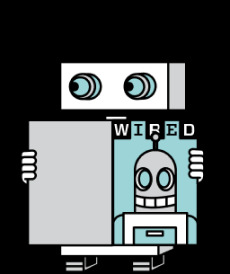
IF YOU’VE SEARCHED for “ChatGPT” in Apple’s App Store since the chatbot launched six months ago, you may have discovered some of the dozens of apps with names like Genie, Genius, and AI Writer claiming to be powered by OpenAI’s technology. Or you might have found Microsoft’s Bing app with the company’s own chatbot inside, powered by OpenAI’s GPT-4 text generator. But ChatGPT itself hasn’t had an official iPhone app released by its own developer—until now.
OpenAI’s free ChatGPT app for iOS just hit Apple’s App Store in the US. As with the original web model of the chatbot, the free-to-use version is built on GPT-3.5, and its most capable persona built on GPT-4 is accessible only if you’re paying $20 a month for ChatGPT Plus.
OpenAI says the mobile app syncs your history of chats with its bot across devices and will be expanding to other countries “in the coming weeks.” An Android app is coming “soon.”
The biggest change that comes with ChatGPT’s new mobile incarnation is that you can now talk to the chatbot instead of just typing. OpenAI has added its speech recognition system, Whisper, which the company claims reaches “human-level robustness and accuracy” for English. That could give interacting with ChatGPT a different feel and perhaps encourage people to turn to it for (glitchy) AI wisdom more often. ChatGPT on iOS will also be limited to phones that can run the iOS 16.1 operating system, which means iPhone 8 or newer hardware models.
But it’s unclear whether ChatGPT will have the same freewheeling personality in the new iOS app as the original form of ChatGPT on OpenAI’s own website, given Apple’s strict content moderation policies in its App Store.
The iPhone maker tells developers that apps should not include “defamatory, discriminatory, or mean-spirited content,” or content that is “offensive, insensitive, upsetting, intended to disgust, or in exceptionally poor taste.” It also prohibits overtly sexual or pornographic material, inflammatory religious content, and “false information and features.” ChatGPT has some limitations built in, but they can be sidestepped, and the chatbot, like other generative AI tools, is widely documented to sometimes present falsehoods and fabrications as fact, a phenomenon known as hallucination.
Lire l’article complet sur : www.wired.com



Leave A Comment